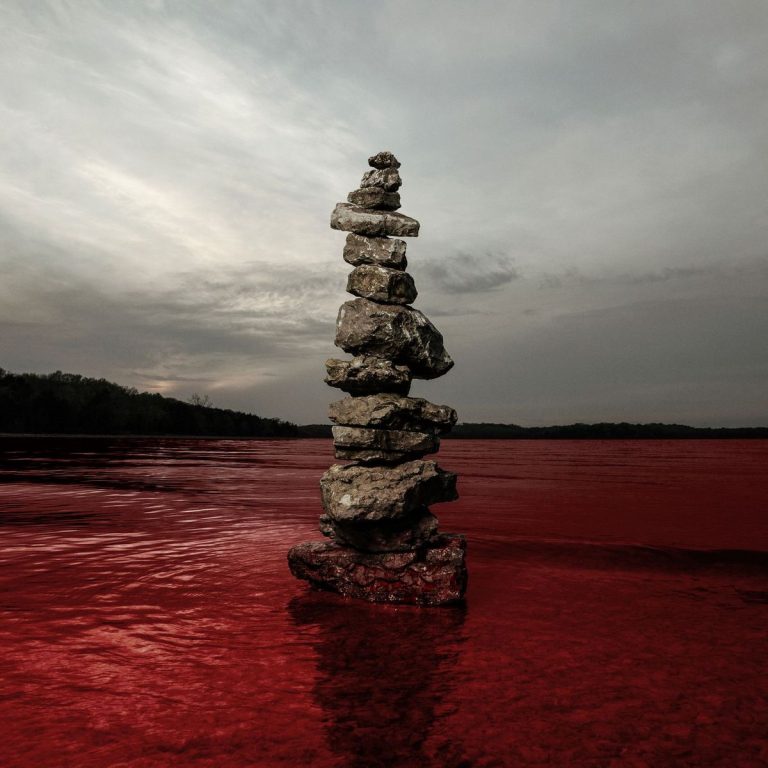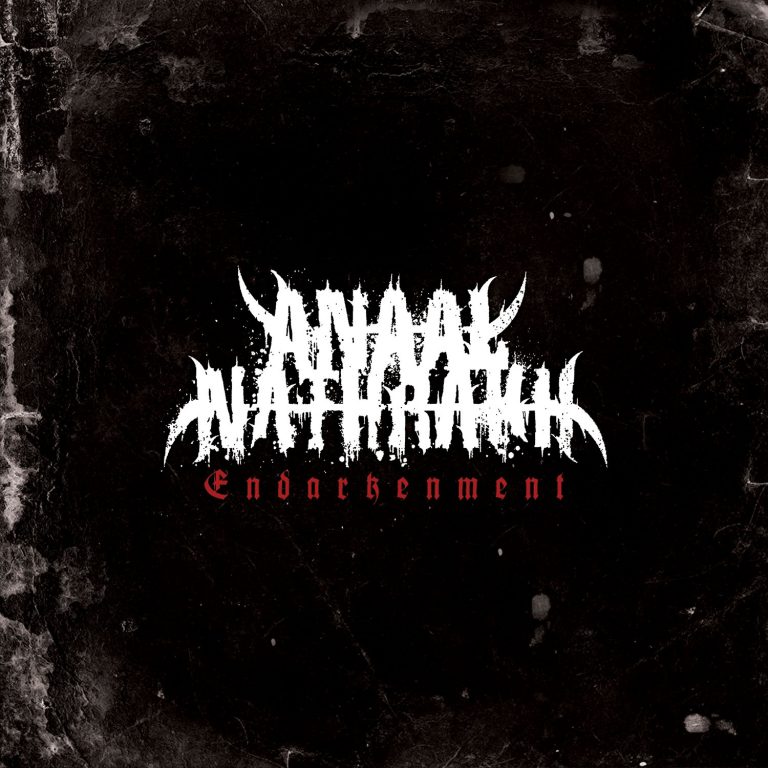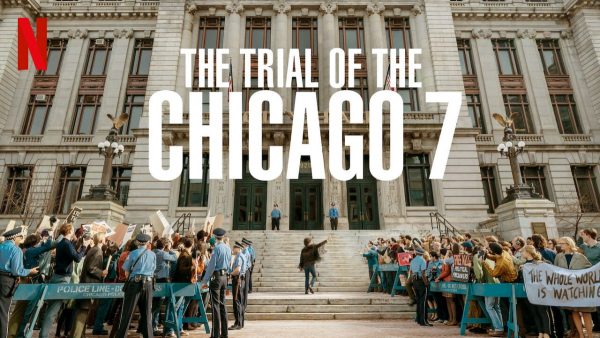
Movie Review: The Trial of the Chicago 7
October 23, 2020This article was originally published in the Kelowna Daily Courier. The original version can be viewed here
Sorkin’s best and worst on display in retelling of famous U.S. trial
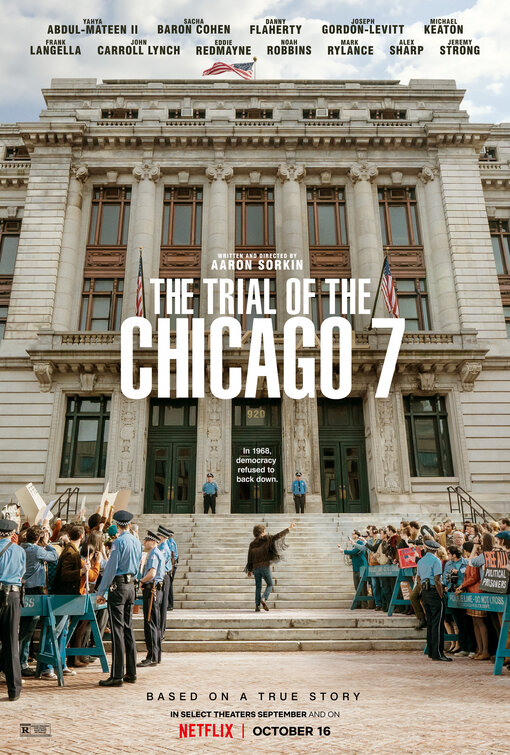
With a career spanning almost 40 years, Aaron Sorkin is best-known for writing politically idealistic screenplays that often come across as a bit too preachy for their own good. While The West Wing, A Few Good Men, and The Social Network are rightfully lauded for their tight writing and pointed social commentary, they also draw criticism for being morally simplistic at times.
The Trial of the Chicago 7, Sorkin’s latest film for Netflix, is no different. Though it features almost unanimously spectacular performances from an all-star cast, Trial too readily paints its heroes as unshakeable paragons, and its villains as corrupt, self-centred, and unreasonable. As a result, Trial’s characters come across as cartoonish, and the movie’s biggest emotional moments end up falling flat as they are repeatedly robbed of any nuance.
The film tells the true story of the “Chicago Seven,” a group of eight defendants who were charged by the U.S. government with conspiracy and inciting a riot during the 1968 Democratic National Convention. After a short introduction of the main characters, the rest of the movie alternates between the courtroom and the lovingly named “conspiracy office” in which the defendants spend their time between trial days.
Events surrounding the defendants’ arrests and the riot itself are shown in flashback sequences relayed by witnesses at the trial. Occasionally, they are intercut with a relevant segment from Abbie Hoffman’s (Sacha Baron Cohen) stand-up act, itself a retelling of the trial.
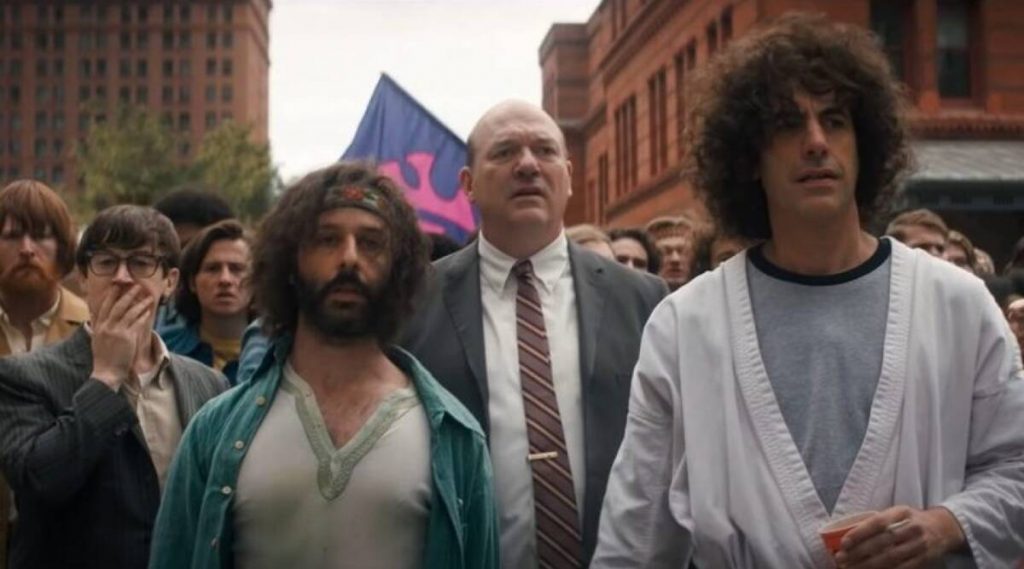
The Trial of the Chicago 7 is only Sorkin’s second film as director, and while he’s more than competent at a technical level, it’s clear he’s still finding his style. The multiple framing devices of trial/stand-up act/between-trial discussion are rarely confusing, but often come across as bloated. It seems like Sorkin couldn’t decide on a way to tell the story, so he told it every way.
Occasionally, Sorkin will use archival footage in a shot, usually to highlight a real atrocity that is more effectively shown through existing footage than recreated. For example, crime scene photos are quickly flashed to depict the death of Fred Hampton (Kelvin Harrison Jr.), and archival footage is used alongside a recreation of an early confrontation between protesters and police. It’s a technique reminiscent of Spike Lee – in particular BlacKkKlansman, which ended on footage of the “Unite the Right” rally in Charlottesville – but where Lee uses this archival footage in an intentionally jarring way to break the audience’s immersion and draw attention to real-life issues, Sorkin uses it in a supplementary way that’s toothless at best, and confusingly ineffective at worst.
Stylistic issues aside, Sorkin elicits phenomenal performances from his actors, who additionally benefit from a very juicy script. Some highlights include Frank Langella as the moustache-twirlingly corrupt judge Julius Hoffman, as well as John Carroll Lynch as David Dellinger, a conscientious objector and pacifist who is pushed to his limit.
Mark Rylance, playing defense attorney William Kunstler, gets his very own “You can’t handle the truth!” moment, as well as plenty of heavy monologues before the court.
Easily the best supporting performance is delivered by Yahya Abdul-Mateen II as Bobby Seale, leader of the Black Panthers and unwilling eighth defendant. Seale, the only black defendant, was not involved with the riots, having been in Chicago a mere four hours before being arrested, and accordingly appears in almost none of the backstory.
Seale is denied counsel and a fair trial, and is repeatedly and viciously reprimanded by the court for speaking out of turn. Halfway through the movie, Seale’s tension with Judge Hoffman culminates in a shocking display of racism that changes the course of the trial.
Baron Cohen’s (non-judge) Hoffman – a rare dramatic performance by a modern-day legend of social satire – gets the most screentime of any character, and is so electrifying in that time, it hardly seems like enough. Hofmann also has the most to do of any of the characters, as the only one of the eight defendants who takes the stand. Hoffman also appears in most of the flashbacks, is most vocal between trial days, and his stand-up show serves as one part of the film’s confusing framing device.
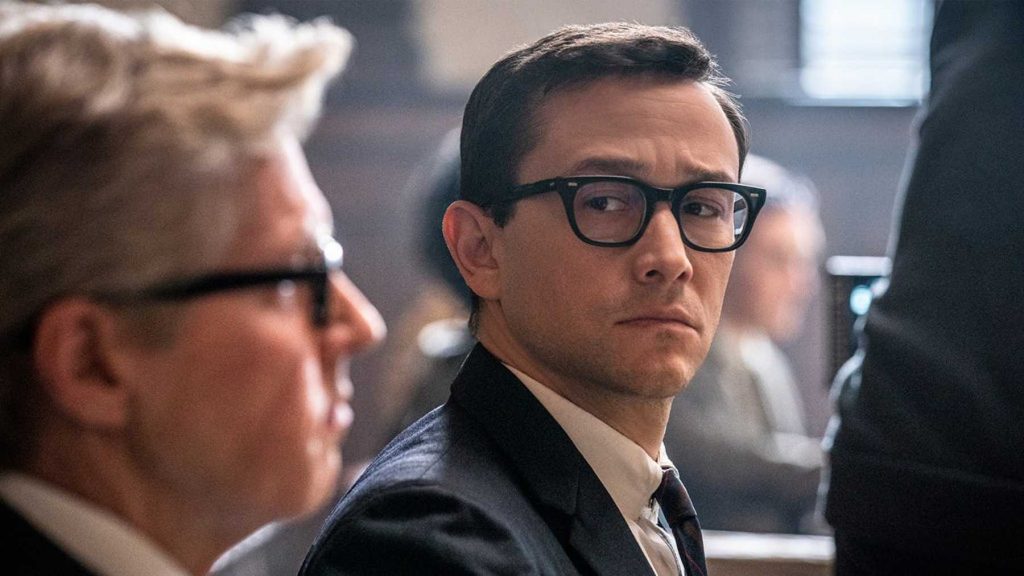
The film is worth watching for the performances of its “good guys” – and Langella – but Sorkin unwisely gives most of his “bad guys” little to do. Joseph Gordon-Levitt’s prosecuting attorney Richard Schultz gets high billing, but only appears in two scenes outside of court. J. C. MacKenzie, who plays the other prosecuting attorney, has even less to do. The police, Nixon administration, and the rest of the institutional players are depicted as little more than faceless goons.
Movies based on real events are – almost by definition – biased. The specific way a director chooses to have events unfold often reveals more about the director than about the events themselves. It’s no secret that Sorkin idolizes the Chicago Seven. It’s equally clear that he sees the Nixon administration as corrupt, petty, and thoroughly villainous (at least when it comes to this trial). Unfortunately, if he’s given any additional thought to the administration’s motivations or humanity, he’s excluded it from this film. Ultimately, despite its strengths, The Trial of the Chicago 7 presents a barely two-dimensional depiction of a landmark court case. Sorkin wants to make this trial relevant to the modern-day, but the parallels barely carry any weight when the movie itself plays out like propaganda.
6/10
